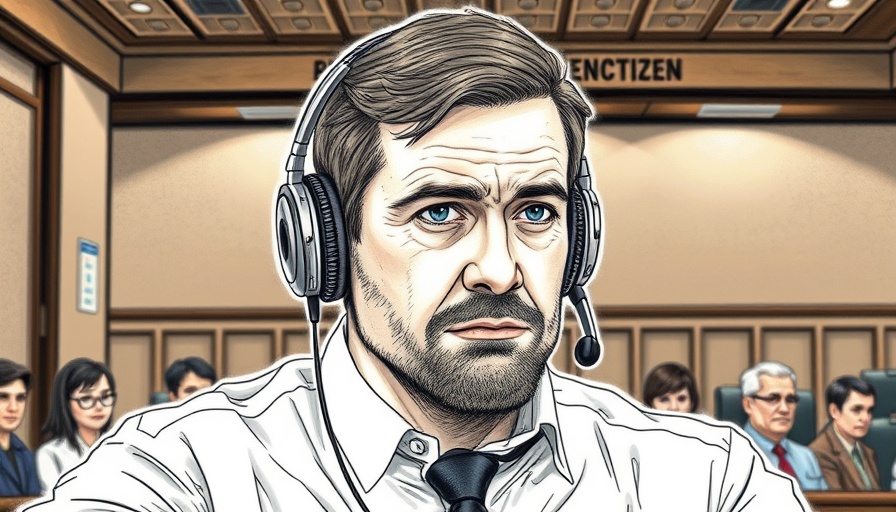
Understanding the Case of Kilmar Abrego Garcia
In a remarkable turn of events, the U.S. government plans to initiate deportation procedures against Kilmar Abrego Garcia before his trial on human smuggling charges in Tennessee. This announcement, made by Justice Department lawyer Jonathan Guynn during a Maryland court hearing, has raised eyebrows, especially since it contradicts previous statements by officials that Garcia would face his charges before considering deportation. What does this mean for Garcia and for the U.S.'s immigration policies?
The Legal Battle Unfolds
As his wife, Jennifer Vasquez Sura, fights to overturn what she calls the Trump administration's misguided deportation of her husband last March, the stakes are high in this case. The court had previously indicated that Garcia could serve time in an American prison prior to any deportation, making the recent revelation that he might face removal as soon as he is released even more contentious.
Implications for Undocumented Immigrants
This incident highlights ongoing fears within immigrant communities, especially among Latino families, about deportation and legal representation. With news cycles often dominated by crime reports, many undocumented immigrants find themselves grappling with uncertainty in their day-to-day lives. Supporters of Garcia are rallying to protect him, bringing attention to the broader implications of his case on family ties and the legal processes surrounding undocumented immigrants.
The Broader Impact on Community Solidarity
Garcia's case has sparked rallies and gatherings, illustrating the power of community support against the backdrop of political uncertainty. Such events strengthen bonds within neighborhoods, showcasing solidarity in the face of adversity. They encourage local residents to come forward and advocate for change, ultimately fostering a more inclusive environment.
Future of Immigration Policy
As we look ahead, the implications of Garcia’s case may signal shifts in immigration policy under future administrations. Advocates argue that laws governing deportation need reevaluation to ensure they prioritize family unity and fairness, reflecting a more humane approach to immigration challenges. Potential reforms may arise as communities demand more compassion in immigration practices, especially in light of stark realities facing immigrant families.
Call to Action
The situation surrounding Kilmar Abrego Garcia is a reminder of the delicate balance between law enforcement and human rights. All of us can engage with our community to advocate for fairness and compassion in immigration policies. Reach out to local representatives, attend community meetings, and participate in discussions that shape the future of immigration in Nevada.
 Add Row
Add Row  Add
Add 



 Add Row
Add Row  Add
Add 

Write A Comment